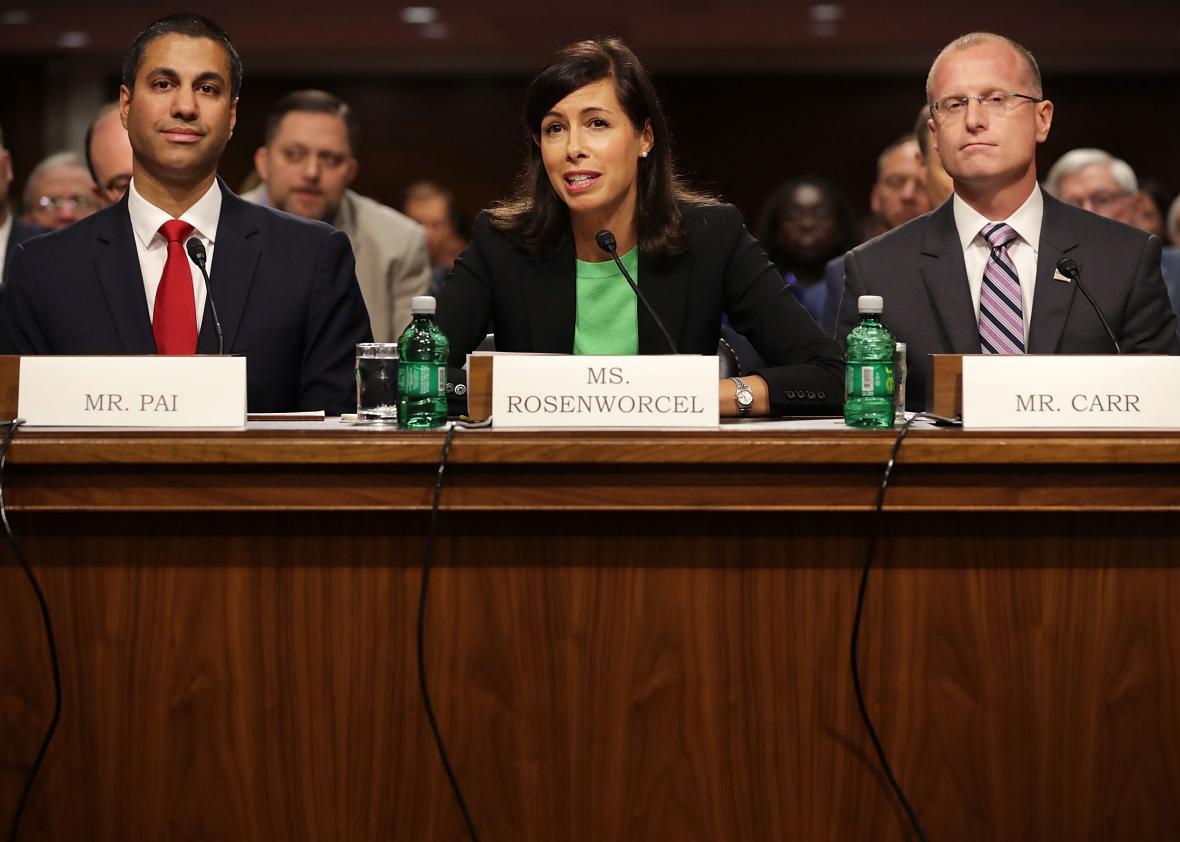If all goes according to plan for Ajit Pai, the Trump-appointed chairman of the Federal Communications Commission, network neutrality will be officially undone by the end of next week. The FCC is scheduled vote on Dec. 14, and the Republican majority is expected to approve Pai’s plan to repeal the open internet regulations that have been in place since 2015. The next step will be for the repeal of the net neutrality rules to be officially published, which could happen as early as January 2018. After that, internet providers will be permitted to charge websites to access users at faster speeds. Sites that can’t afford (or don’t want) to pay up will find themselves slowed down and harder to reach.
The timeline is a fast one—Pai only introduced his plan to undo the hard-won Obama-era net neutrality protections in May—and the two Democratic FCC commissioners say it needs to be slowed way down. They point to the unprecedented amount of public engagement the issue has attracted and the seriously flawed public comment process. Millions of Americans have flooded the FCC’s website to share how Pai’s proposal to lift network neutrality protections will impact them, but there have also been comments from dead people and bots that were suspiciously in favor of undoing the net neutrality rules, as well as a cyberattack on the FCC’s comment system that is currently under investigation from the Government Accountability Office. On top of all that, a Pew study released last week found that 94 percent of the comments submitted to the FCC were posted multiple times and 57 percent were tied to temporary or duplicate email addresses. Only 3 percent of the comments submitted were found to have passed through the FCC’s email-verification procedure.
All of which is why Commissioner Jessica Rosenworchel told Slate in a recent interview that before the open internet rules are officially repealed, the FCC should hold public hearings across the country to get a better idea of what Americans think about the proposed changes. Commissioner Mignon Clyburn also called for public hearings in a Medium post last week.
Back in May 2014, Pai himself complained that the FCC was moving too fast on net neutrality changes. “Indeed, on several recent issues, many say that the Commission has spent too much time speaking at the American people and not enough time listening to them,” Pai said in response to then-Chairman Tom Wheeler’s proposed open internet regulations, which at the time drew criticism from both Republicans and Democrats on the commission. Rosenworcel had already called to delay the vote in order to ensure that there had been enough time for the American people to speak up and for the FCC to consider the public response. In his remarks, Pai agreed, saying, “Going forward, we need to give the American people a full and fair opportunity to participate in this process. And we must ensure that our decisions are based on a robust record.”
But Pai’s office hasn’t responded to multiple requests for comment as to whether he’s open to the delaying the vote, despite the numerous documented irregularities in the public comment process. Pai said at a House subcommittee in July that one thing that would make him open to reconsidering his plan to repeal the network neutrality rules would be a convincing argument that investment in internet infrastructure actually on the rise following the implantation of the Obama-era regulations. Had the chairman been on Comcast, AT&T, and Verizon’s investor calls since the rules passed, however, he would learn that all claimed that investment in their networks had actually increased since the network neutrality rules were passed, as I reported in July.
Pai wanted to slow down the FCC back when he was in the minority and he opposed the direction in which the commission was headed. Now that he’s in power, Pai wants his plan, the final language of which was officially shared two days before Thanksgiving, to sail through without delay—no matter how broken and corrupt the public participation process has been.
